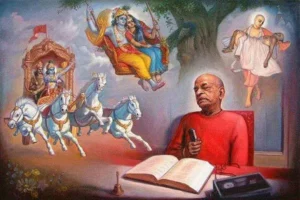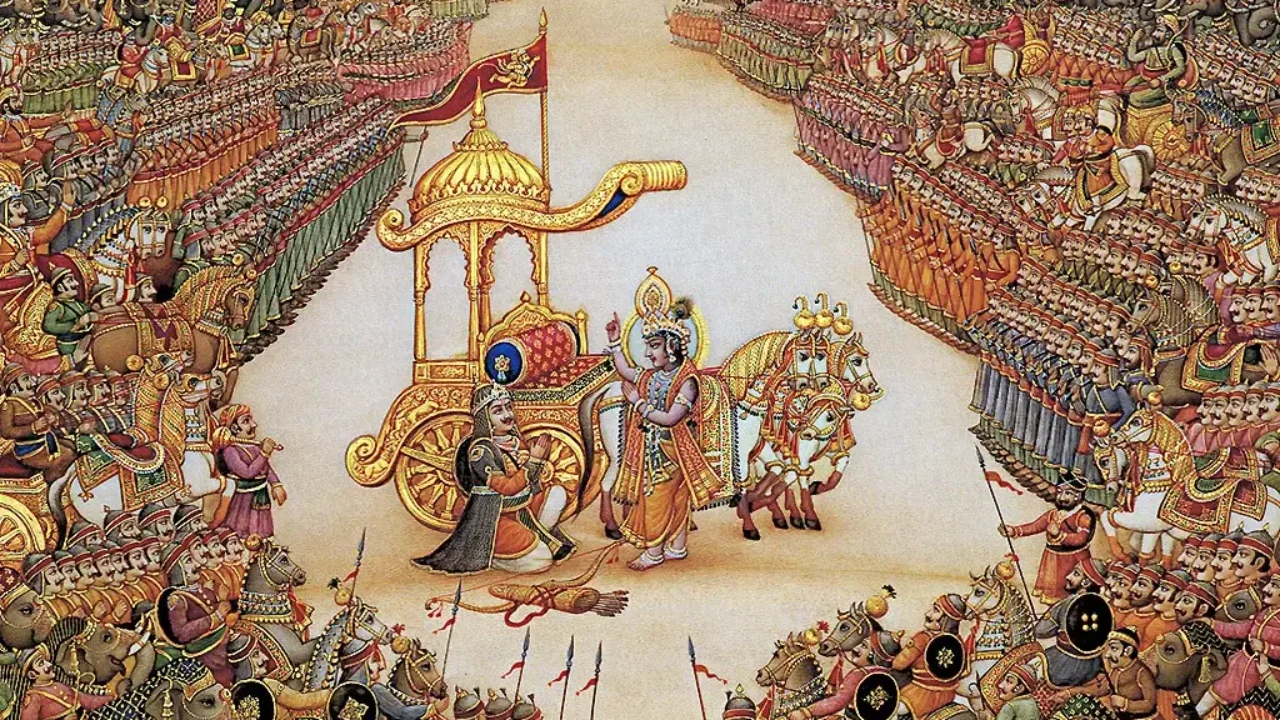

A human being is defeated in all his activities as long as he does not know the goal of life, which can be understood when one inquires about Brahman. It is such inquiry that begins the Ved?nta-s?tra: ath?to brahma jij??s?.
A human being should be interested in knowing who he is, what the universe is, what God is, and the relationship between himself, God, and the material world. Cats and dogs cannot ask such questions, but they must arise in the heart of a real human being.
Knowledge of these four items?namely oneself, the universe, God, and their internal relationship?is called sambandha-j??na, or the understanding of one’s relationship. When one establishes his relationship with the Supreme Lord, he acts in that relationship. This stage is called abhidheya, or activity in relationship with the Lord. After executing such prescribed duties, when one attains the highest goal of life, love of Godhead, he achieves prayojana-siddhi or the fulfillment of the mission in this human dress. CC Adi 7.146 Purport
?r? Caitanya Mah?prabhu explained to San?tana Gosv?m? that there are three purposes in the Vedas. One is to understand our relationship with K???a (sambandha), another is to act according to that relationship (abhidheya), and the third is to reach the ultimate goal (prayojana). The word prayojana means “necessities.” ?r? Caitanya Mah?prabhu explains the utmost necessity. prem? pum-artho mah?n: the most significant necessity for a human being is the achievement of love for the Supreme Personality of Godhead. SB 10.8.45 Purport
The conditioned soul is bewildered by the external, material energy, which fully engages him in sense gratification in various ways. Our engagement in material activities covers our original K???a consciousness.
However, as the supreme father of all living entities, K???a wants His sons to return home, back to Godhead; therefore,
In this way, the living entity can understand his constitutional position and relationship with the Supreme Lord.
K???a confirms in the Bhagavad-g?t? (15.15), vedai? ca sarvair aham eva vedya?. Through the study of Ved?nta, one may become fully aware of his relationship with the Supreme Lord and act accordingly. In this way, one may ultimately attain the platform of loving service to the Lord.
It is in the living entity’s best interest to understand the Supreme Lord. Unfortunately, the living entities have forgotten that this is in their best interest, and therefore ?r?mad-Bh?gavatam says, na te vidu? sv?rtha-gati? hi vi??um (Bh?g. 7.5.31).
Everyone wants to achieve life’s ultimate goal, but we waste our time with sense gratification due to being absorbed in the material energy. Through the study of Vedic literatures ? of which the essence is the Bhagavad-g?t? ? one comes to K???a consciousness.
Thus one engages in devotional service called abhidheya. When the living entity develops the love of Godhead, he has reached the ultimate goal, prayojana. In other words, one who becomes K???a conscious fully has attained the perfection of life. CC Madhya 20.125 Purport